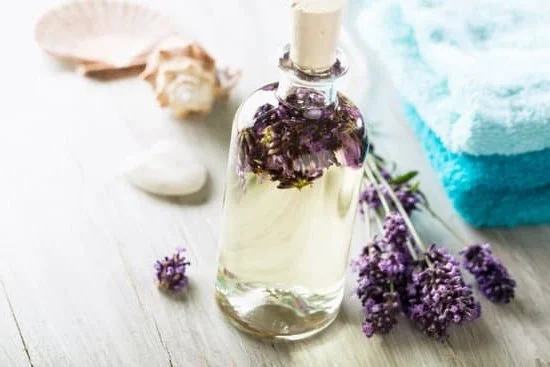Aromatherapy essential oils have been used for centuries to promote overall well-being and address various health concerns. These highly concentrated plant extracts are known for their therapeutic properties and delightful scents, making them a popular choice for natural remedies. In recent years, there has been growing interest in using aromatherapy essential oils in homemade toothpaste as a way to enhance oral health.
The question of whether aromatherapy essential oils can be used in homemade toothpaste has intrigued many individuals who are looking to incorporate natural ingredients into their oral care routine. With the rising popularity of natural and organic products, the use of essential oils in toothpaste has become a topic of discussion among those seeking alternative options for maintaining dental health.
In this article, we will explore the benefits of using aromatherapy essential oils in toothpaste, discuss the types of essential oils that are beneficial for dental health, provide recipes for DIY aromatherapy essential oil toothpaste, and share tips for selecting high-quality oils. Additionally, we will address safety precautions that should be taken when using essential oils in toothpaste, and ultimately determine whether incorporating aromatherapy essential oils into homemade toothpaste is a worthwhile endeavor.
Benefits of Using Aromatherapy Essential Oils in Toothpaste
Aromatherapy essential oils have been used for centuries to promote relaxation, improve mood, and treat various ailments. However, their benefits extend beyond just their aromatic properties. When it comes to dental health, aromatherapy essential oils can offer several advantages when used in toothpaste.
Antibacterial and Antimicrobial Properties
Many aromatherapy essential oils, such as tea tree oil, peppermint oil, and cinnamon oil, possess natural antibacterial and antimicrobial properties. These properties make them effective in killing the bacteria that cause plaque formation, gum disease, and bad breath. Incorporating these oils into homemade toothpaste can help to maintain oral hygiene and prevent oral infections.
Natural Freshening Agents
Aromatherapy essential oils are known for their pleasant scents, making them perfect natural freshening agents for toothpaste. Oils like peppermint, spearmint, and citrus oils not only leave a refreshing taste in the mouth but also help combat bad breath. By including these oils in homemade toothpaste formulations, you can achieve a clean and fresh feeling after brushing your teeth.
Promotes Oral Health
In addition to their antibacterial properties, many aromatherapy essential oils also offer benefits for overall oral health. For example, clove oil has analgesic properties that can help alleviate toothaches and reduce gum pain. Eucalyptus oil has anti-inflammatory properties that can reduce inflammation of the gums. By incorporating these oils into homemade toothpaste recipes, you can promote better oral health while enjoying the therapeutic effects of aromatherapy essential oils.
Types of Aromatherapy Essential Oils for Dental Health
Aromatherapy essential oils have been used for centuries for their healing and therapeutic properties, and they can be a valuable addition to homemade toothpaste. When it comes to dental health, certain types of essential oils are known for their antibacterial, antiseptic, and anti-inflammatory properties, making them beneficial for oral hygiene.
Peppermint essential oil is perhaps one of the most popular choices for homemade toothpaste due to its refreshing taste and natural antibacterial properties. It can help to freshen breath, kill bacteria in the mouth, and soothe any gum irritation.
Tea tree oil is another great option, as it has powerful antimicrobial properties that can help combat bacteria that cause tooth decay and gum disease. Clove oil is also commonly used in dental care products because of its pain-relieving and antiseptic qualities.
Incorporating these aromatherapy essential oils into homemade toothpaste formulations not only provides a natural alternative to commercial toothpaste but also allows individuals to customize their oral care products based on personal preferences and specific dental needs. However, it’s crucial to ensure proper dilution of essential oils to avoid any adverse reactions or irritation.
It’s important to note that while aromatherapy essential oils can provide benefits for dental health when used correctly, they should be used with caution. Some essential oils are potent and can cause skin sensitivity or allergic reactions if not properly diluted.
Always do a patch test before using an essential oil in your homemade toothpaste to ensure you don’t have any adverse reactions. Additionally, consult with a healthcare professional before using essential oils for dental purposes, especially if you have any underlying health conditions or are pregnant.
How to Incorporate Aromatherapy Essential Oils in Homemade Toothpaste
Aromatherapy essential oils can indeed be used in homemade toothpaste to enhance its benefits. Here’s how you can incorporate these oils into your DIY toothpaste:
- Choose the right essential oil: When making homemade toothpaste, it’s important to choose the right essential oil that not only tastes good but also possesses dental health benefits. Some of the best essential oils for dental health include peppermint, tea tree, clove, cinnamon, and eucalyptus.
- Measure the proper amount: Essential oils are highly concentrated, so it’s crucial to measure them accurately when adding them to your toothpaste recipe. For a typical batch of homemade toothpaste, 10-20 drops of essential oil is usually sufficient.
- Mix it thoroughly: Once you have your base ingredients for the toothpaste ready, such as baking soda and coconut oil, add the measured essential oil drops and mix everything thoroughly until you achieve a smooth and well-blended consistency.
Incorporating aromatherapy essential oils into homemade toothpaste not only adds a pleasant flavor to your oral care routine but also brings potential oral health benefits. Whether you’re looking for fresher breath or want to harness the natural antibacterial properties of certain essential oils, incorporating them into your toothpaste can elevate your dental hygiene routine.
When considering using aromatherapy essential oils for homemade toothpaste, it’s important to take safety precautions. Essential oils should always be used in moderation as they are highly concentrated.
Additionally, some individuals may be allergic to certain essential oils, so it’s recommended to perform a patch test before applying any new essential oil-based product on the skin or gums. Lastly, always store homemade toothpaste with essential oils in opaque containers away from sunlight and moisture to maintain their potency.
Safety Precautions When Using Aromatherapy Essential Oils in Toothpaste
Aromatherapy essential oils are a popular choice for homemade toothpaste due to their natural properties and potential benefits for oral health. However, it is important to use them with caution and be aware of safety precautions when incorporating them into your oral care routine.
One of the most important safety precautions when using aromatherapy essential oils in toothpaste is to ensure that the oil is safe for oral use. Not all essential oils are suitable for ingesting or using on mucous membranes, so it’s crucial to do thorough research or consult with a qualified aromatherapist before adding any oil to your toothpaste recipe.
Some essential oils, such as peppermint and tea tree oil, have been traditionally used in oral care and are generally considered safe when used appropriately.
Another safety consideration is the concentration of essential oil used in toothpaste. Essential oils are highly concentrated plant extracts, so they should be diluted properly to avoid irritation or adverse reactions. When making homemade toothpaste, always follow recommended dilution guidelines and start with a small amount of essential oil to test for sensitivity.
It’s also important to be mindful of allergies and sensitivities when using aromatherapy essential oils in toothpaste. If you have known sensitivities to certain plants or botanicals, carefully consider whether an essential oil could cause an allergic reaction or other adverse effects when used orally.
| Safety Precautions | Considerations |
|---|---|
| Use safe-for-oral-use oils | Not all aromatherapy essential oils are safe for oral use |
| Dilution | Properly dilute essential oils to avoid irritation |
| Allergies and Sensitivities | Be mindful of potential allergic reactions or sensitivities |
DIY Aromatherapy Essential Oil Toothpaste Recipes
Peppermint and Tea Tree Oil Toothpaste
One popular DIY aromatherapy essential oil toothpaste recipe involves the use of peppermint and tea tree oil. Peppermint essential oil has antibacterial properties that can help fight off harmful bacteria in the mouth, while tea tree oil is known for its antifungal and antiseptic properties.
To make this toothpaste, simply mix 1/2 cup of baking soda with 10 drops of peppermint essential oil and 5 drops of tea tree oil. Add a few drops of water to achieve the desired consistency, and store it in a sealed container.
Clove and Cinnamon Oil Toothpaste
Another effective DIY toothpaste recipe using aromatherapy essential oils includes clove and cinnamon oil. Clove oil has been used for centuries as a natural remedy for toothaches and oral infections, while cinnamon has antimicrobial properties that can help prevent bad breath.
To create this toothpaste, combine 1/2 cup of coconut oil, 2 tablespoons of baking soda, 10 drops of clove essential oil, and 5 drops of cinnamon essential oil. Mix thoroughly and store in a glass jar for daily use.
Lemon Essential Oil Whitening Toothpaste
For those looking to brighten their smile naturally, lemon essential oil can be incorporated into a homemade toothpaste recipe. Lemon essential oil has natural whitening properties that can help remove stains from the teeth.
To make this whitening toothpaste, mix together 1/2 cup of bentonite clay, 2 tablespoons of xylitol or stevia for sweetness, 10 drops of lemon essential oil, and enough water to reach your desired consistency. This citrus-infused toothpaste not only freshens breath but also helps whiten teeth over time when used consistently.
By following these simple DIY aromatherapy essential oil toothpaste recipes, you can enjoy the benefits of natural oral care while avoiding potentially harmful chemicals found in commercial toothpaste products. These homemade alternatives not only promote dental health but also provide a refreshing aroma during your daily oral hygiene routine.
Tips for Choosing High-Quality Aromatherapy Essential Oils for Toothpaste
When choosing aromatherapy essential oils for homemade toothpaste, it’s important to select high-quality oils that are safe for oral use. Here are some tips for selecting the best essential oils for your DIY toothpaste:
- Look for 100% Pure Oils: Ensure that the essential oil is labeled as 100% pure and is not diluted with any other substances.
- Check for Organic Certification: Organic essential oils are free from pesticides and other harmful chemicals, making them a healthier choice for toothpaste.
- Research the Brand: Choose reputable brands that have a good track record for producing high-quality, therapeutic-grade essential oils.
Additionally, consider the specific dental benefits of each essential oil before incorporating it into your toothpaste recipe. Some popular options for dental health include:
- Peppermint Oil: Known for its ability to freshen breath and promote oral hygiene.
- Tea Tree Oil: Contains natural antiseptic properties that can help combat bacteria in the mouth.
- Clove Oil: Used in dentistry for its analgesic and antibacterial properties, which can aid in relieving toothaches and fighting oral infections.
By following these tips and considering the unique benefits of each essential oil, you can ensure that you’re choosing high-quality oils that are both safe and effective for use in homemade toothpaste.
Conclusion
In conclusion, the use of aromatherapy essential oils in homemade toothpaste can be a beneficial and natural way to promote dental health. With their antibacterial, anti-inflammatory, and antiseptic properties, these oils can help fight against bacteria, reduce inflammation, and freshen breath.
However, it is important to note that not all essential oils are suitable for dental use, and some may even be harmful if ingested. Therefore, it is crucial to research and choose high-quality essential oils that are safe for oral consumption.
When incorporating aromatherapy essential oils into homemade toothpaste, it is recommended to start with small amounts and gradually increase as needed. This will allow you to gauge how your body responds to the addition of these potent oils. Additionally, it is imperative to follow safety precautions such as diluting the essential oils properly and avoiding ingestion in large quantities.
Overall, while there are numerous benefits to using aromatherapy essential oils in homemade toothpaste, it is important to exercise caution and seek advice from dental professionals before using them. By taking the necessary precautions and choosing high-quality oils, you can harness the power of nature’s remedies for better oral health.
Frequently Asked Questions
Can You Use Aromatherapy Oils in Toothpaste?
Aromatherapy oils should not be used in toothpaste unless they are specifically formulated for oral use. Ingesting essential oils without proper guidance can be harmful to your health.
Are Essential Oils Safe for Teeth?
Essential oils can be safe for teeth when used correctly and in appropriate doses. Some essential oils, like peppermint and tea tree oil, have antimicrobial properties that can benefit oral health.
Can You Put Aromatherapy Oils in Your Mouth?
It is not recommended to put aromatherapy oils in your mouth without the guidance of a healthcare professional. Essential oils are highly concentrated and can be toxic if ingested improperly. Always use them with caution and care.

Are you looking for a natural way to improve your health and wellbeing?
If so, aromatherapy may be the answer for you.





